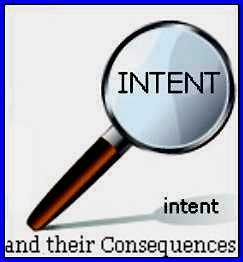
Under section 108 of WESA, if the executor does not apply for a grant of probate then anyone interested in the estate may require the executor to accept or renounce probate, or explain to the court why the administration of the deceased’s estate should not be granted to the executor or to another person who is willing to act as the personal representative.
Probably more powerful is the use of Citations under Rule 25 – 11.
A citation is issued to compel a reluctant executor to apply for a grant of probate, and if the person cited fails to proceed with the probate, is then under rule 25 – 11 (5) deemed to have renounced as executor, and then the citor of the citation or another person interested in the estate, may then apply for a grant of probate in the place of the initial reluctant executor.
See s. 108 WESA:
Requirement to accept executorship or to explain
108 If an executor named in a will does not apply for a grant of probate of a will, any person interested in the estate may, in accordance with the Supreme Court Civil Rules, require the executor to
(a) accept or renounce probate of the will, or
(b) explain why administration of the deceased person’s estate should not be granted to the executor or to another person who is willing to act as personal representative.
Under the Supreme Court Rules:
Rule 25-11 — Citations
Citation to apply for probate
(l)If a testamentary document is or may be in existence, a person interested in the estate may serve by personal service on each person named as an executor in the testamentary document a citation in Form P32 in respect of the testamentary document to require the served person to apply for a grant of probate in relation to that testamentary document.
[
Alternate executors
(2)A citation under subrule (1) in relation to a grant of probate
- must be served by personal service on each alternate executor if an event, including, without limitation, an event referred to in subrule (5), occurs that entitles the alternate executor to assume the office of executor, and
- must not be served on an alternate executor until an event referred to in paragraph (a) occurs that entitles that alternate executor to assume the office of executor.
Citation to be supported
(3)A citation under subrule (1) in relation to a testamentary document must include
- an address for service of the citor, which address for service must be an accessible address that complies with Rule 4-1 (1), and
- a statement of the citor providing
(i) the grounds for the citor’s knowledge of or belief as to the existence of the testamentary document, and
(ii) information available to the citor that will allow the testamentary document to be identified.
Answer to citation
(4)A person who is cited by being served with a citation under subrule (1) must, within 14 days after being served with the citation,
- if the cited person has been issued a grant of probate in respect of the testamentary document in relation to which the citation was issued, serve on the citor, by ordinary service, a copy of the estate grant, or
- if the cited person has not yet been issued a grant of probate in respect of the testamentary document in relation to which the citation was issued, serve the citor as follows:
(i) if the cited person has filed a submission for estate grant under Rule 25-3 (2) in respect of the testamentary document, serve on the citor, by ordinary service, a copy of the filed submission for estate grant along with copies of the other documents filed under Rule 25-3 (2);
2
(ii) if subparagraph (i) does not apply but the cited person has delivered documents under Rule 25-2 (1) in relation to an application for a grant of probate that the cited person intends to pursue in respect of the testamentary document, serve on the citor, by ordinary service, a copy of those documents;
(iii) if the cited person has not taken any step under this Part in relation to the estate, serve on the citor, by ordinary service, an answer in Form P33 providing an address for service that is an accessible address that complies with Rule 4-1 (1) and stating that the cited person
(A) will apply for a grant of probate in respect of the testamentary document, or
(B) refuses to apply for a grant of probate in respect of the testamentary document.
Deemed renunciation of executorship
(5)A person who is cited under subrule (1) to apply for a grant of probate in relation to a testamentary document is deemed to have renounced executorship in relation to that testamentary document if
(a) he or she is a person referred to in subrule (4) (b) (i), (ii) or (iii) (A) and does not
(i) serve on the citor the document that, under that provision, he or she is required to serve, or
(ii) obtain a grant of probate within 6 months after the date on which the citation was served or within any longer period that the court on the application of the cited person may allow, or
(b) he or she is a person who serves on the citor an answer referred to in subrule (4) (b) (iii) (B).
]
Effect of failure to answer citation or give reason for refusing probate
(6)If each person who is cited under subrule (1) to apply for a grant of probate in relation to a testamentary document is deemed under subrule (5) to have
3
renounced executorship in relation to the testamentary document, the citor or another person interested in the estate may, without limiting any other right the citor or other person may have, apply for one or more of the following:
- a grant of probate or a grant of administration with will annexed in relation to the testamentary document or another testamentary document;
- an order under section 58 of the Wills, Estates and Succession Act curing any deficiencies in the testamentary document;
- an order that the testamentary document is a will proved in solemn form;
- if the testamentary document is in the possession of a cited person, the issuance of a subpoena under Rule 25-12 to require the cited person to file the testamentary document.Affidavit of deemed renunciation for grant of probate
- (7)The citor may swear an affidavit of deemed renunciation in Form P34 if the person who has been served with a citation in respect of a testamentary document is deemed under subrule (5) to have renounced executorship in relation to the testamentary document.




